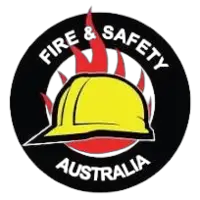
This role has a moderate level of AI exposure. AI can enhance efficiency for some tasks, but this job still relies on human skills and decision-making.
Explore all careersA Spotter Catcher locates and relocates wildlife before land clearing, using traps and tracking methods while working outdoors in various conditions.
Get qualified to work as a Spotter Catcher with a course recognised across Australia. Speak to a training provider to learn more.



In Australia, a full time Spotter Catcher generally earns $1,050 per week ($54,600 annual salary) before tax. This is a median figure for full-time employees and should be considered a guide only. As you gain more experience you can expect a potentially higher salary than people who are new to the industry.
 Courses.com.au Team
Courses.com.au Team
The number of people working in this field has dropped slightly over the last five years. There are currently 4,200 people employed in this industry and many of them specialise as a Spotter Catcher. Spotter Catchers may find work across all regions of Australia.
Source: Australian Government Labour Market Insights
 Courses.com.au Team
Courses.com.au Team
If you’re interested in working as a Spotter Catcher, consider enrolling in a Certificate III in Conservation and Land Management. You’ll learn more about biodiversity and restoration work and gain practical skills in this field. You could also consider a Certificate III in Marine Habitat Conservation and Restoration.
 Courses.com.au Team
Courses.com.au Team
Browse occupations related to Spotter Catcher



For those looking to embark on a rewarding career in the environmental field, Spotter Catcher courses in Sydney offer an excellent pathway. These programs equip aspiring Spotter Catchers with the crucial skills needed to mitigate risks associated with wildlife during construction activities. By enrolling in a Spotter Catcher course, you will be well-prepared to handle the responsibilities that come with protecting native fauna while ensuring compliance with local regulations in Sydney, 2000 Australia.
As a qualified Spotter Catcher, you may find that your skill set is transferable to various related job roles. From becoming a Conservation Manager overseeing large projects, to entry-level positions such as a Conservation Trainee, the opportunities are diverse. Those who take an interest in ecosystem preservation can also explore careers as a Forester or a Ecologist, ensuring that your new skills can lead to numerous fulfilling avenues within the conservation sector.
Sydney's rich biodiversity presents unique challenges and opportunities for Spotter Catchers. With various ecosystems in close proximity to urban developments, the role of a Spotter Catcher is essential in balancing progress with environmental stewardship. Completing Spotter Catcher courses not only positions you for immediate job roles like Land Manager or Conservation Officer, but also opens doors to specialised careers such as a Marine Biologist or a Fisheries Scientist, making a significant impact on both land and marine environments.
If you are passionate about wildlife and the environment, training as a Spotter Catcher is an excellent choice. By undertaking Spotter Catcher courses in Sydney, you’ll learn about effective strategies for wildlife management and how to collaborate with various stakeholders in the area. The knowledge gained can also prepare you for future roles, including Marine Environmental Consultant or Conservation Biologist, expanding your contributions to ecological conservation throughout the vibrant landscapes of Sydney, 2000 Australia.